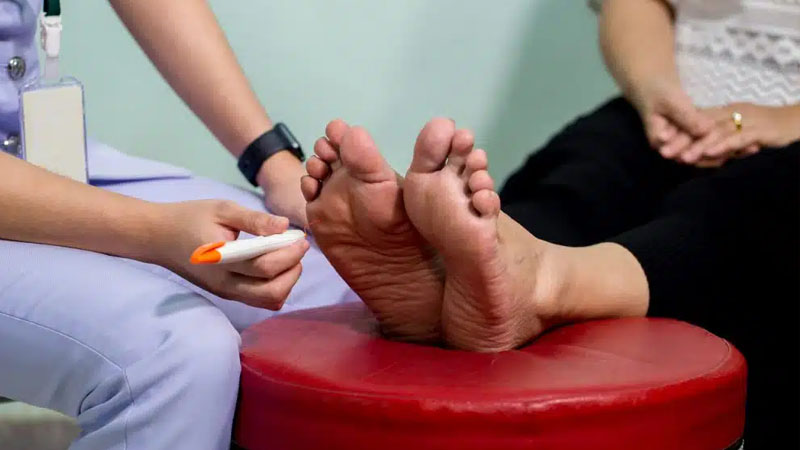A “slow-developing” pain in the feet may be more than just a discomfort—it could serve as an early warning sign of high cholesterol or even heart disease, experts caution. Medical professionals now warn that burning or aching foot pain, particularly at rest, could be a sign of peripheral arterial disease (PAD), a common form of cardiovascular disease.
Cardiovascular disease remains the leading cause of death globally, accounting for nearly 18 million lives lost each year. The umbrella term includes conditions such as coronary heart disease, strokes, and heart failure. While chest pain is often seen as the classic symptom, doctors are urging the public to pay attention to subtler signs, especially those showing up in the feet.
The Cleveland Clinic highlights that burning or aching sensations in the feet and toes, particularly at night while lying in bed, may point to PAD. The condition is caused by fatty plaque buildup in the arteries, reducing blood flow to the limbs, especially the legs and feet.
Early signs of PAD often emerge gradually and can be easily overlooked. The National Health Service (NHS) warns that symptoms “often develop slowly, over time,” but adds that any sudden worsening of symptoms should be treated as a potential emergency.

Discomfort during physical activity, such as cramping or pain in the legs or buttocks, is often the first indication. However, other foot-related symptoms may include:
- Persistent sores on the toes or feet that don’t heal
- Cool or pale skin on the feet (which may be harder to detect on darker skin tones)
- Numbness or weakness in the legs
- Shiny skin
- Reduced or absent hair growth on legs or feet
- Toenail changes like thickening, brittleness, or discoloration
- Erectile dysfunction in men
- Shrinking of leg muscles (wasting)
According to the Advanced Foot and Ankle Center, these symptoms should not be ignored, as PAD can progress to life-threatening complications, including heart attack, stroke, or even limb amputation in severe cases.
The Cleveland Clinic emphasizes the importance of early diagnosis:
“Early detection of PAD is important so you can begin the right treatments before the disease becomes severe enough to lead to complications like a heart attack or stroke,” experts noted.
To lower the risk of PAD and other cardiovascular diseases, the NHS recommends a few key lifestyle changes: engaging in regular exercise, quitting smoking, following a healthy diet, managing weight, and limiting alcohol consumption. Anyone experiencing persistent or unusual foot pain is strongly urged to consult a healthcare provider without delay.

